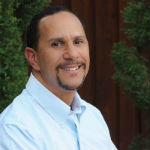The Supreme Court’s ruling in NIFLA v. Becerra highlights an important sphere of the abortion debate: the free speech rights of pregnancy centers that do not provide abortions and, ultimately, their right to exist at all. The California law the court struck down forced pregnancy centers to provide free advertising for state-funded abortions. Not only did this compel speech that would have violated the consciences of the privately funded healthcare providers and volunteers who staff these centers, it would have exposed them to countless lawsuits designed to bankrupt them into closing their doors.
Pro-abortion groups view centers that provide free services to pregnant women as an existential threat to their cause, particularly when those centers serve poor and minority women, the heart of the abortion industry customer base. Just last year, Human Coalition’s Atlanta center was the target of well-funded protests aimed at shutting it down because of its success in offering vulnerable women alternatives to abortion.
Pro-abortion groups rarely seem to object to pregnancy centers in suburban or rural communities. In 2008, however, the National Institute for Reproductive Health (NIRH) partnered with NARAL, to launch its Urban Initiative, a comprehensive plan to rid urban areas of alternatives to abortion. The initiative’s goal is to pass laws at the state and local level to drastically increase the regulation of pregnancy centers, with the aim of closing as many as possible.
In my own state of Maryland, I witnessed the hearings where activists succeeded in imposing compelled speech on Baltimore pregnancy centers in 2009. (I was one of a handful of pro-lifers who took time off work to attend, while the pro-abortion activists were accompanied by dozens of paid protestors.) The Greater Baltimore Center for Pregnancy Concerns (GBCPC) sued in 2010 and won, a decision that was upheld by the Fourth Circuit on appeal in 2012. But the Urban Initiative was at work all over the country, and in 2011, a San Francisco Supervisor spearheaded local legislation that would lay the groundwork for statewide pro-life discrimination in California’s 2015 Reproductive FACT Act, found unconstitutional by the high court this week.
Interestingly, during this same time period, pro-abortion activists have worked to decrease regulation on abortion clinics. In California, nurses and other non-physicians can now perform life-threatening procedures like abortion without a doctor present. This calls into question the claim that the activists’ cause is about women’s health and safety, rather than the proliferation of abortion. abor
Ignored by the pro-abortion activists is the fact that many, many pregnant women do not want to abort their children but believe they have no other choice. They do not have support from their partners, families, or local community, and their anxiety and lack of support make abortion appear to be the only way to contend with chaos. Many women and girls face pressure or even coercion and force to abort from boyfriends, pimps, or parents. Pregnancy centers offer a supportive and calming environment to discuss options. Most also provide resources such as diapers, formula, car seats and other baby items, and parenting classes and assistance with jobs, education, and housing. Abortion facilities, on the other hand, offer no support; instead, they sell a costly procedure that ends the life of the preborn human child.
Abortion providers like Planned Parenthood enjoy hundreds of millions of dollars of federal funding, paid staff, and lobbyists, while most pregnancy centers are funded with private donations and staffed mostly by volunteers. For all their moaning about the harm pregnancy centers supposedly do to women, groups like NARAL “can show almost no complaints from the hundreds of thousands of authentic clients whom the centers have served.” Many pro-choice Americans want women to have both sets of services: abortion for those who are so inclined and adoption/assistance for those who want to carry their pregnancies to term. Hardcore activists want to eliminate the second option, especially for low-income, minority women.
The NIFLA v. Becerra ruling is far more than a win for pro-life free speech. It is a win for the vulnerable women these centers serve, at least for now. Those women deserve access to the compassion and resources pregnancy centers offer. The Supreme Court did something profoundly just in protecting the right of pro-life centers to reach the women and preborn children most in need.
 Rev. Dean Nelson serves as the Chairman of the Board of the Douglass Leadership Institute and National Outreach Director at Human Coalition. Rev. Nelson is on Twitter @DeanLife1.
Rev. Dean Nelson serves as the Chairman of the Board of the Douglass Leadership Institute and National Outreach Director at Human Coalition. Rev. Nelson is on Twitter @DeanLife1.
 Black Community News News and Commentary for Christians
Black Community News News and Commentary for Christians




By attacking urban pregnancy resource centers, the pro-aborts are following in the footsteps of Margaret Sanger, who wanted to get rid of poor people, people of color, and nationalities she didn’t like (e.g. Italians). Justice Ruth Bader Ginsburg inadvertently confirmed that when she said that Roe v. Wade was reducing the numbers of “people we don’t want too many of.”
And when the pro-aborts fight against sensible regulations designed to protect women, they show that their real agenda isn’t “choice” or women’s health, but population control.